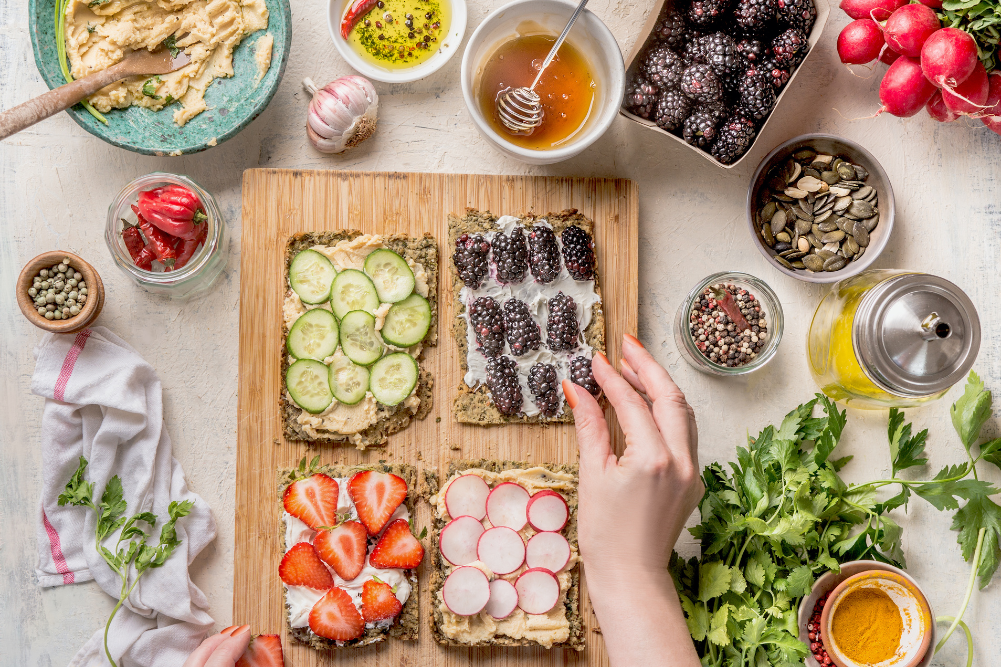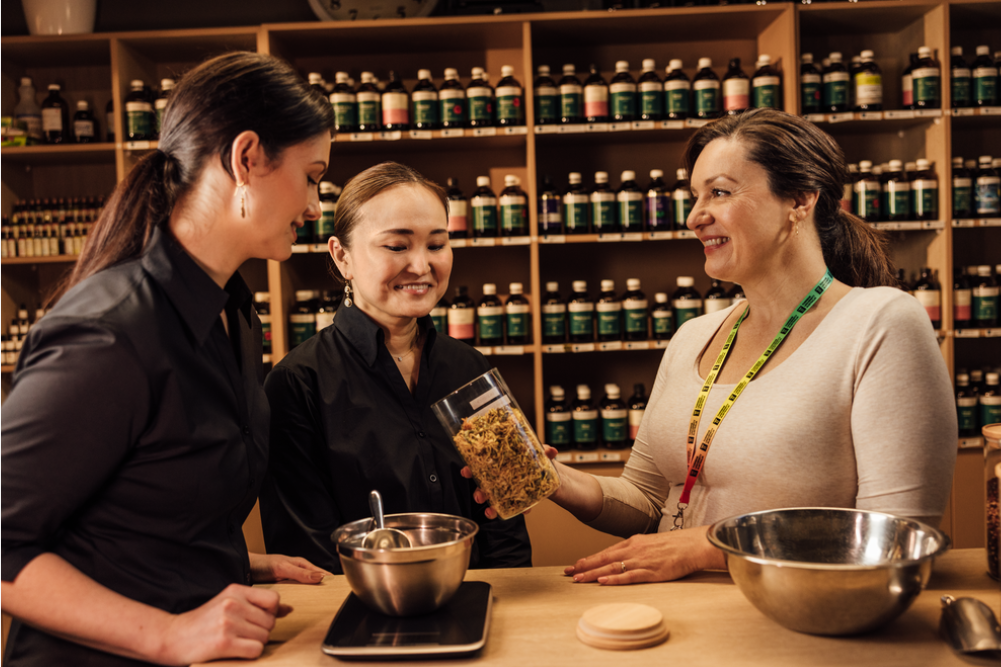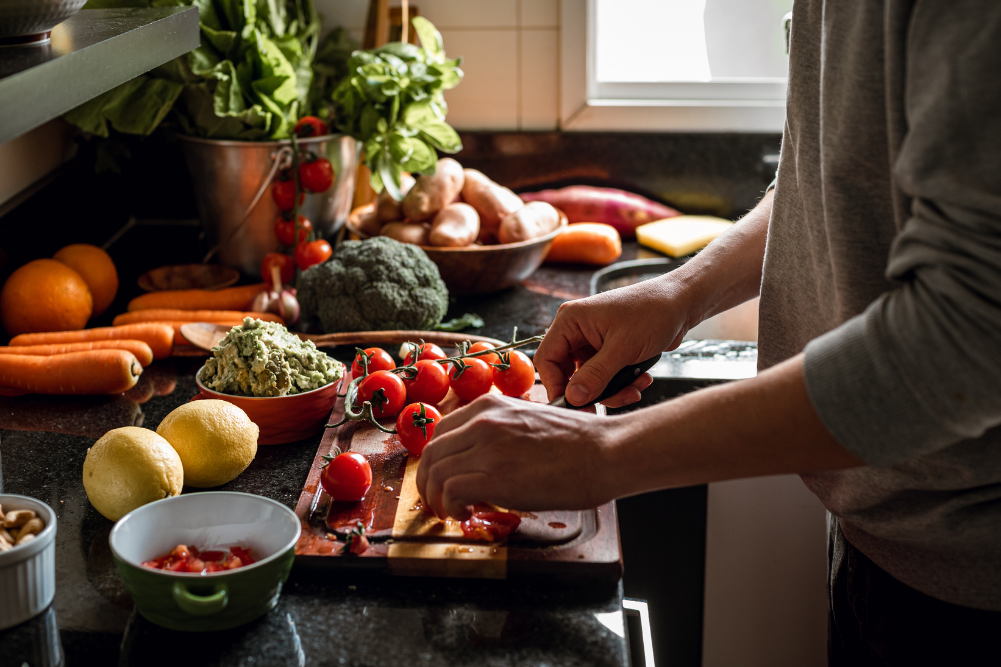
Healthy Eating, Healthy Living
Discover how healthy eating can support disease prevention, boost well-being, and meet the demand for nutrition experts.
Good nutrition sounds like a no-brainer, but in a world where convenience trumps health – it can be a real challenge in everyday life. What we eat impacts every aspect of our well-being, from physical health to mental clarity and longevity, but navigating this for the average person can feel overwhelming. So, it’s no surprise that the demand for qualified nutritionists is on the rise. Our industry-led Bachelor of Health Science (Clinical Nutrition) degree, backed by expert practitioners, helps equip aspiring nutritionists with the skills and knowledge to meet this growing demand.
Elise Strange, one of our expert Learning Facilitators in Health at Torrens University Australia, explores the impact nutrition has on disease prevention and minimising the risk of developing breast cancer.
The Power of Nutrition
Written by Elise Strange, Accredited Practicing Dietitian, Learning Facilitator – Nutrition
Chances are, breast cancer has touched someone you know – a friend, family member, or even yourself. There is a 1 in 7 risk of being diagnosed with breast cancer over a woman’s lifetime, with about 57 Australians diagnosed each day. Despite improvements in treatment and survival rates, the increasing incidence of this disease underscores the need for effective prevention strategies. Growing evidence suggests that dietary choices can significantly influence breast cancer risk, offering a proactive approach to safeguarding your health.
Eat smart for disease prevention
Research has shown a spotlight on some key foods and nutrients that hold promise in reducing breast cancer risk:
Vitamin D – The sunshine vitamin has garnered attention recently for its apparent protective effect against breast cancer. With almost one-quarter of Australian adults reported as deficient in this essential Vitamin, it is important not to assume you are receiving an adequate dose through casual sunlight exposure.
Using the Cancer Council’s SunSmart App can help you safely catch those rays. You can also boost your levels with food sources of Vitamin D, including oily fish (such as salmon and sardines), eggs, mushrooms, fortified cereal and dairy products. Checking your Vitamin D levels with a simple blood test can ensure you are getting enough.
Soy – The impact of soy products on breast cancer risk has been a contentious issue. Due to soybeans being a rich source of isoflavones, compounds with weak oestrogen-like activity, it was long presumed they might increase the risk of breast cancer. Instead, current evidence indicates that soy products are not only safe but may confer a protective effect against breast cancer. It is thought isoflavones might reduce oestrogen activity by attaching to (and blocking) oestrogen receptors in the body or reducing oestrogen production. They may also reduce processes associated with cancer growth. Good sources include whole soy foods, such as tofu, soy milk, edamame and tempeh.
Dairy foods – Like soy, the role of dairy foods in breast cancer development has been controversial. However, recent reviews indicate that overall dairy consumption is linked to a slight decrease in breast cancer risk. Low-fat and fermented dairy products, like yogurt and kefir, show the most protective effects, whereas high-fat dairy products may be less favourable. This is significant given that osteoporosis impacts nearly 25% of Australian women over 50, highlighting the importance of including dairy or dairy alternatives in their diet to support bone health.
Alcohol – Scientific research strongly links alcohol consumption to an increased risk of breast cancer. Even low intakes (less than 10-15g per day, equivalent to a standard drink) are associated with higher risk. Factors contributing to this include alcohol’s pro-oestrogenic effect, DNA damage, and oxidative stress. Peak bodies recommend limiting or avoiding alcohol to mitigate breast cancer risk.
Plant-based diets – Several studies have examined the relationship between plant-based diets, including the Mediterranean Diet and the risk of breast cancer. These indicate that following a diet high in plant foods (wholegrains, fruits, and vegetables) and low in animal-based foods may reduce the risk of breast cancer. Multiple individual components of a plant-based diet have themselves been linked to reduced risk, including fibre, high fruit and vegetable intake, and beta-carotene – an antioxidant found in leafy vegetables and fruits and vegetables of yellow and orange pigments. Coupled with evidence of increased risk from consumption of red and processed meats, the case for a diet rich in plant foods are compelling. Swapping some meat for protein sources that may reduce your breast cancer risk, such as soy foods and mushrooms, could be a recipe for good health.
Weight maintenance – The World Cancer Research Fund International has identified strong evidence that greater weight gain in adulthood increases the risk of postmenopausal breast cancer. Given that being physically active has been associated with a reduced risk of the disease, a combination of regular (preferably vigorous) physical activity and a healthy, plant-based diet appears to be a sensible strategy to reduce weight gain and arm yourself against breast cancer.
By incorporating these dietary strategies into your daily routine, you can take proactive steps toward reducing your risk of breast cancer. It’s important to remember that individual factors, including genetics and personal health history, also play a role in cancer risk. Consulting with healthcare professionals for personalised advice and continuing regular screenings are essential components of breast cancer prevention and early detection.
At Torrens University Australia, we offer bespoke services at The Practice Wellbeing Centre, our student-led clinics across Sydney, Melbourne and Brisbane.
Curious about a career in nutrition? Transform your love for health and wellbeing into a rewarding career through our Bachelor of Health Science (Clinical Nutrition) degree.
Subscribe
Subscribe to a newsletter to receive latest post and updates



